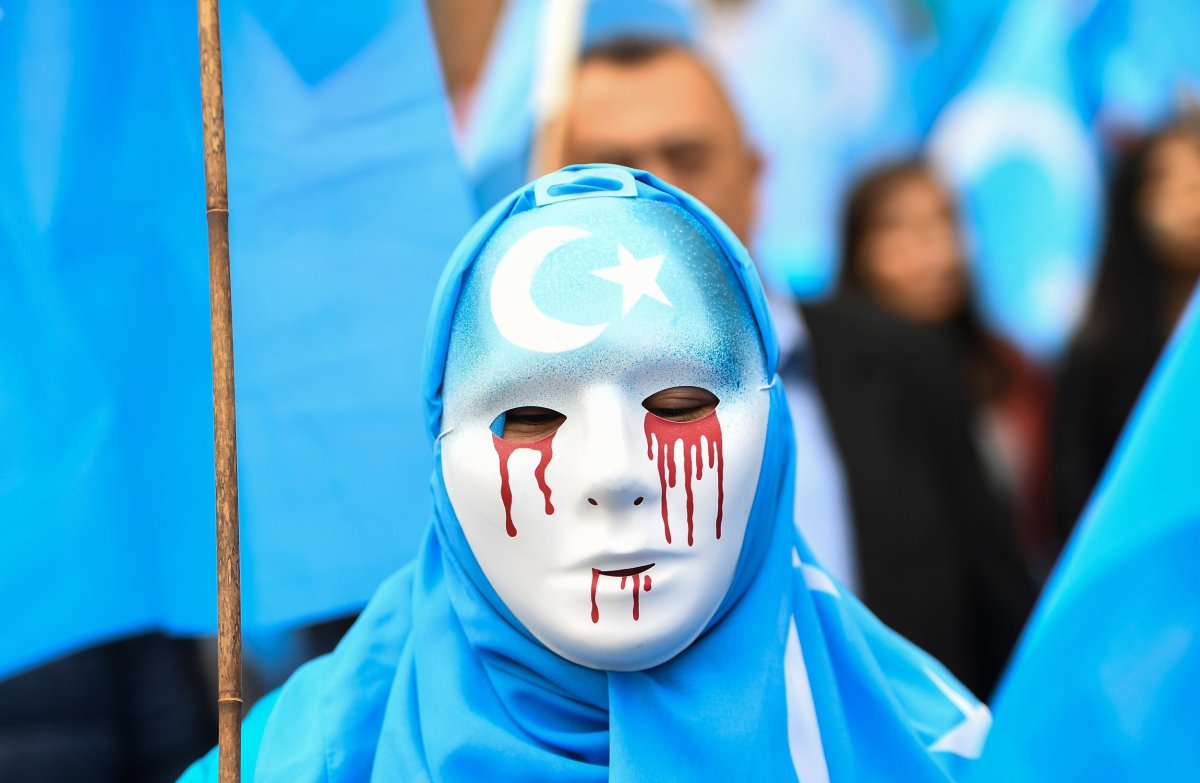Chinese state media dismissed international criticism of the country's controversial Muslim re-education camps, claiming the centers were needed to stop terrorism and that the global community would eventually come to support the repressive policy.
An editorial in the state-backed Global Times newspaper—which often reflects the more aggressive strains of official Chinese opinion—suggested that "whining" from U.S. and other international officials was baseless and ineffective.
The article was responding to comments made by U.S. Assistant Secretary of Defense Randall G. Schriver, who last week described the re-education centers in China's Xinjiang region as "concentration camps."
The camps, which were believed to hold up to 3 million people, are part of Beijing's Sinicization efforts in the Muslim-majority region. Former detainees have described a wide range of human rights abuses inside the camps, where prisoners are fed a daily diet of Communist Party propaganda.
Outside the camps, the government is destroying mosques and operating a highly intrusive surveillance network to suppress any individuals or groups suspected of disloyalty to the Communist Party.
But the Global Times editorial rejected Schriver's statement, which it called "the craziest attack by a U.S. official on the governance of Xinjiang." The article also claimed "Washington's growing smear campaign" on Xinjiang is "clearly part of a broader U.S. policy of suppressing China."
The newspaper stressed that the U.S. has no power over what is happening in Xinjiang, meaning "we don't have to be swayed by the whining of some U.S. officials."
Ultimately, all Western concerns should be in "a secondary position" to Beijing's strategy, the article continued. It also claimed the policy was already contributing to "an obvious trend of stabilization" in the region.
The editorial attempted to juistify the camps by positing to recent terrorist attacks on places or worship in New Zealand and Sri Lanka. "Xinjiang, in turn, has been shielded from the flow of international terrorism and extremism," it suggested, claiming that international opinion "will gradually turn in the favor of Xinjiang governance."
Some observers have argued that Beijing's Sinicization policy equates to ethnic cleansing. But the Global Times article said all such accusations "are historically indefensible and will eventually fade away."
"As long as Xinjiang can maintain basic stability and avoid the catastrophic resurgence of violent and terrorist activities, the number of education and training centers will gradually reduce after a period of time," the article predicted. "The governance in Xinjiang will gradually return to normal, and in this process Xinjiang will finally bid farewell to large-scale bloody terrorist activities."
Islamic militants fighting against Chinese rule in Xinjiang have launched multiple terrorist attacks across the country in recent years. Most have consisted of mass stabbings and vehicle attacks, and have claimed dozens of lives. China claims to have arrested 13,000 in Xinjiang since 2014.
The Global Times argued the region must be kept "basically stable and resolutely avoid large-scale terrorist activities that occurred in previous years. This will be the key indicator for a final evaluation of Xinjiang's governance."
The author also stressed the need for "grass-roots publicity and education work" to show those living in "sensitive areas" like Xinjiang that Western nations are trying to "incite extremism within China."

Uncommon Knowledge
Newsweek is committed to challenging conventional wisdom and finding connections in the search for common ground.
Newsweek is committed to challenging conventional wisdom and finding connections in the search for common ground.
About the writer
David Brennan is Newsweek's Diplomatic Correspondent covering world politics and conflicts from London with a focus on NATO, the European ... Read more
To read how Newsweek uses AI as a newsroom tool, Click here.








